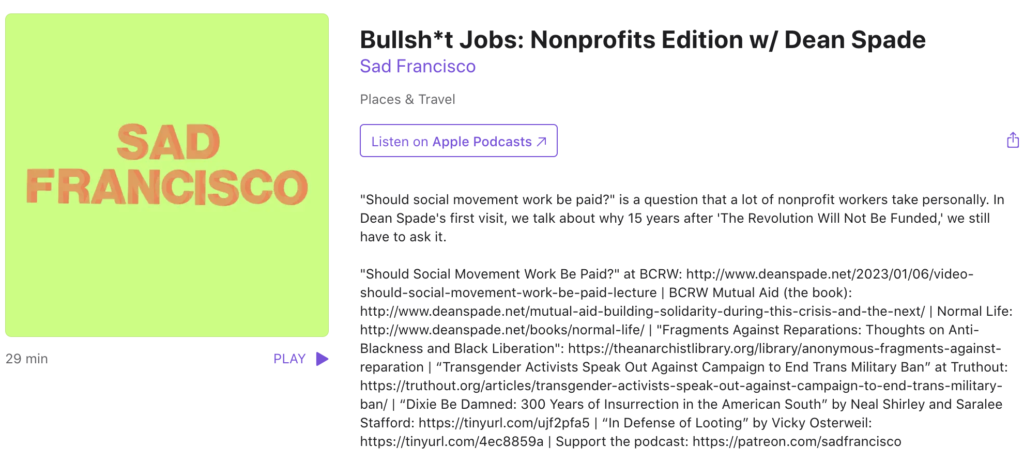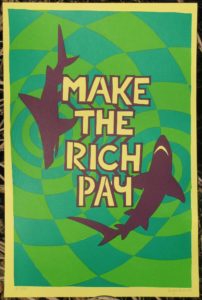
It was delightful, as always, to talk with Toshio Meronek about nonprofitization, queer resistance, gentrification, cops and more. Check it out.

It was delightful, as always, to talk with Toshio Meronek about nonprofitization, queer resistance, gentrification, cops and more. Check it out.
I had the pleasure of doing another workshop on romance with the Fireweed Collective, following up on my Valentine’s Day 2021 workshop on the Romance Myth, below.
Below is a video of the ASL interpreters for the Romance Myth workshop.

I had the pleasure of another wide ranging, fascinating, bizarre conversation with Conner Habib.
For years, I have been sad about how mutual aid rarely gets taught in classes about social change and social movements. It is such a vital part of movement building and transformation, and often very mobilizing for students to learn about it. I hope this will be changing as the concept of mutual aid is circulating more. I made a Teaching Guide to go with my new book about mutual aid being published by Verso Books in October, wanted to share now in case anyone is considering the book for fall syllabi.

Today is a horrifying holiday dedicated to false narratives that attempt to cover over colonialism and genocide, and also a day when many people make an effort to “give back” by volunteering somewhere. Images of friendly upper class people volunteering at soup kitchens to feed homeless people articulate charity narratives that hide the actual causes and consequences of wealth and poverty.

I am sensing, all around me these days, how desperately frustrated, scared, and angry many people are about what is going on in the world around us–climate change, war-induced famine in Yemen, imprisoned children and parents at our borders and across the land, Amazon’s takeover of our food systems and cities, superstorms and disastrous fires, and so much more. I think a lot of people are wishing they knew more about how to plug in to processes of change they can believe in. I am frustrated watching misunderstandings about what change is and how it happens (“Care about poor people? Just volunteer in a soup kitchen once a year!”) circulate widely. I think their circulation is designed to demobilize us and keep us from participating in effective strategies to build the social conditions we want and need. So here is a very rough draft of a chart and some writing about the difference between “having a cause” as it is commonly described (or worse yet, the careerist version, “social justice entrepreneurship”), and living a life focused on our commitments to radical transformation. I hope it helps us imagine more creative, robust ways of being engaged with each other and the conditions we live in as we participate in resistance and transformation.
Continue reading ““Having a Cause” versus Living in a Life Centered in Radical Transformation”